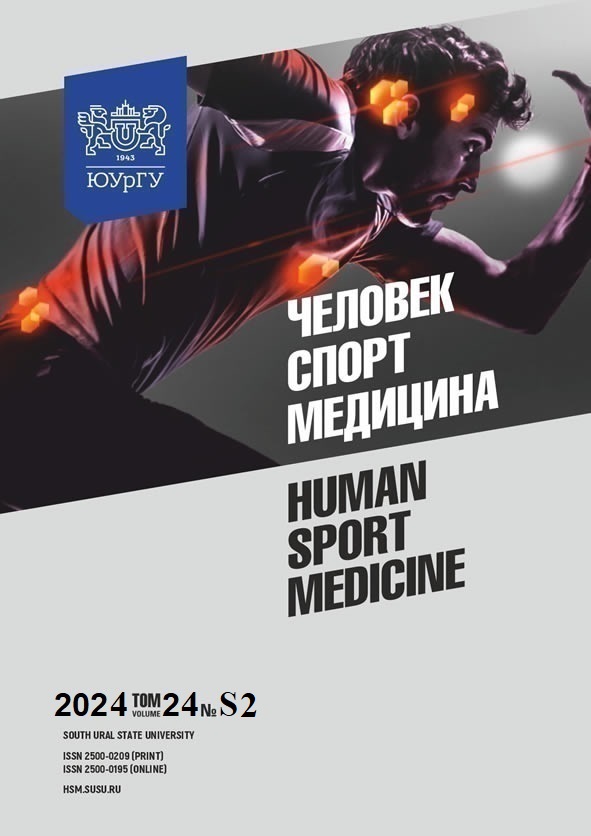HORMONAL AND METABOLIC STATUS IN ATHLETES UNDERGOING INTENSE TRAINING
Abstract
Aim. This paper aims at evaluating the effect of intense training on the hormonal and metabolic profiles of competitive swimmers, with particular emphasis on biomarkers of overtraining. Materials and methods. The study involved 3 groups of subjects (n = 21; 18-19 years of age), namely: group 1 (n = 7) – swimmers experiencing no overtraining symptoms during the preparatory mesocycle; group 2 (n = 7) – swimmers experiencing overtraining symptoms during the preparatory mesocycle; and the control group – swimmers without intense exercise. Serum concentrations of lactic acid, uric acid, urea, glucose, cortisol, free triiodothyronine (FT3), free thyroxine (FT4), and thyroglobulin were measured using standardized methods. Results. Lactic acid and uric acid levels were elevated in Group 2 compared to both other groups. Glucose concentrations were decreased in Group 2 compared to both other groups. Cortisol levels were 1.32 and 1.11 times higher in Group 2 compared to the control group (P = 0.002) and Group 1 (P < 0.015), respectively. Thyroglobulin concentrations were 2.42 times lower in Group 2 compared to Group 1 (P = 0.015). FT4 levels were 1.17 times lower in Group 2 compared to the control group (P = 0.02). Conclusion. The findings suggest that swimmers experiencing overtraining exhibit increased lactic acid, uric acid, and cortisol levels, decreased glucose and thyroglobulin concentrations, and reduced FT4 content. These biochemical changes may serve as potential biomarkers of overtraining.
References
References on translit
Copyright (c) 2025 Human. Sport. Medicine

This work is licensed under a Creative Commons Attribution-NonCommercial-NoDerivatives 4.0 International License.















